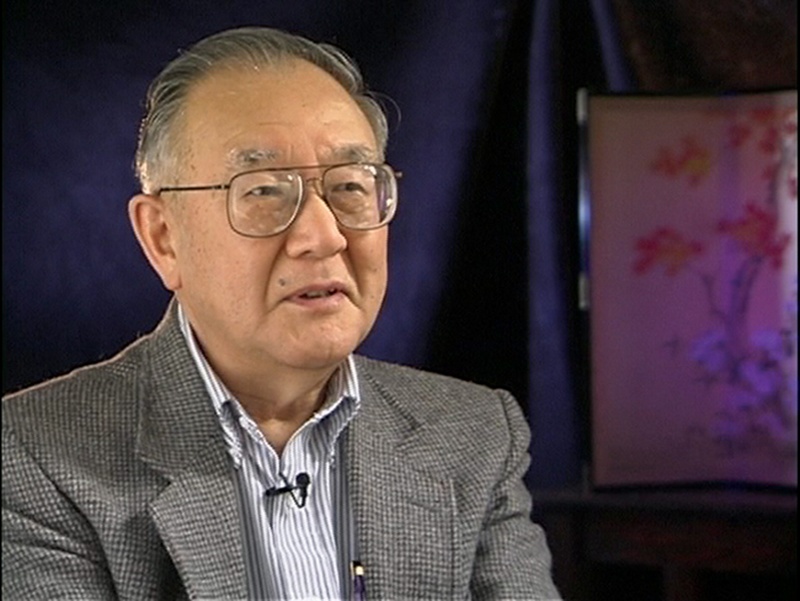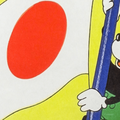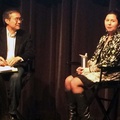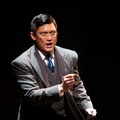Within JACL circles, its Seattle chapter has always been known, with either admiration or disdain, as “the maverick chapter.” For that, they can thank Henry Miyatake.
Henry was the troublemaker Japanese America needed. Without his persistent vision of petitioning for redress of grievances, the government would never have rescinded Executive Order 9066 in 1976, Seattle would have never organized the nation’s first Day of Remembrance in 1978, and the campaign for redress for the World War II incarceration might never have gotten off the ground.
Two stories capture what made Henry special.
As a teenager at Hunt High School in Minidoka, Idaho, his civics teacher was proud of introducing Henry to the Constitution and Bill of Rights. Henry learned so well, he wrote a scathing term paper on “American Democracy and What It Means to Me” in which he unleashed all his frustrations about being locked up in camp. The teacher felt betrayed and demanded he rewrite it. Henry refused, and he was expelled.
As a systems engineer at Boeing in Seattle, his manager cut Henry’s salary by 25 percent following cancellation of a major program. The manager said he knew the Nisei engineers like Henry would be subservient and take it, based on his reading of Mike Masaoka’s hyper-patriotic “Japanese American Creed.” “The Creed, in essence, was his justification for saying we can treat you any way we feel like,” Henry said later. “That took me by surprise, and made me think we’re gonna have to do something to have people reappraise their position for Japanese Americans.”
That something was redress. It was Henry who researched the Federal Code in 1975 and discovered that EO 9066 was still on the books. Through connections with Washington Gov. Dan Evans, Henry got the issue to the White House, and President Ford used language drafted by Henry to revoke the Executive Order on Feb. 19, 1976.
It was Henry who conceived the innovative “Seattle Plan” for individual redress that was to be self-funded through a voluntary income tax check-off plan. If PowerPoint existed back then, he would have made a PowerPoint presentation. Being a systems engineer, Henry drew complex flow charts on paper flip charts, and shopped them all over town. He’d talk to any group that would listen.
But California Sen. S.I. Hayakawa caught wind of it and attacked the notion as the agenda of Sansei radicals. The idea was in danger, so several of us stepped forward to back Henry’s plan by creating the first-ever Day of Remembrance, a two-and-a-half-mile car caravan to the former Puyallup detention center that was the largest gathering of Japanese Americans in one place since the end of World War II.
There was no white backlash, no angry mob — refuting Hayakawa’s threat that redress would “rekindle old resentments.” Days of Remembrance made it safe for people across the country to step out of the shadow, and sparked the grassroots support that carried redress forward 10 years later to final action.
But taking credit, being in the limelight, was never for Henry.
Henry was not there when President Ford signed his “American Promise.” He was not in the photo when President Reagan signed the Civil Liberties Act. But neither of those turning points that fundamentally changed our history would have been imaginable without the dogged persistence, the selfless commitment, and the unassuming courage of Henry Miyatake.
And that’s why, after learning that Henry had passed away quietly in Federal Way, Wash. on Sept. 16, we in Seattle would not let him go without some closure. We held a community memorial to say goodbye to Henry on Dec. 6. Henry served in the U.S. Army Counterintelligence Corps in the Korean War era, so the service was hosted at the Seattle Nisei Vets clubhouse.
He was once asked, “Do you see yourself as a leader?” To which Henry replied, “No, I do not. I’m one of the ditch-diggers. Hopefully, all the others will be digging the same way.”
Henry was a great ditch-digger. He taught us to look our history in the eye, with the zeal of an evangelist and the inescapable logic of an engineer. He was the conscience of our community, and he will be deeply missed.
*This article was originally published on Nichi Bei, on December 18, 2014.
© 2014 Frank Abe






